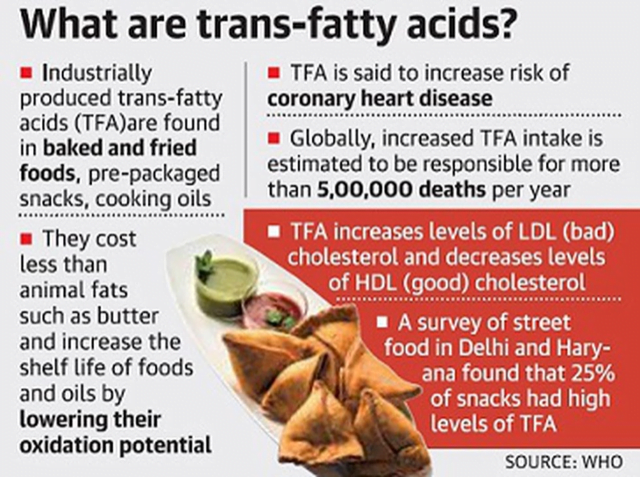UPSC Articles
FSSAI amends its rules to cap trans-fatty acids (TFAs)
Part of: GS Prelims and GS- II – Health
In news
- The Food Safety and Standards Authority of India (FSSAI) has amended its rules to cap trans-fatty acids (TFAs) in food products, just weeks after it tightened the norms for oils and fats.

Key takeaways
- Food products in which edible oils and fats are used as an ingredient shall not contain industrial trans-fatty acids more than 2% by mass of the total oils/fats present in the product, on and from 1st January 2022.
- The 2% cap is considered to be the elimination of trans-fatty acids, which India will achieve by 2022.
- In December 2020, the FSSAI had capped TFAs in oils and fats to 3% by 2021, and 2% by 2022 from the current levels of 5%.
Important value additions
- Trans-fatty acids are created in an industrial process that adds hydrogen to liquid vegetable oils to make them more solid, increase the shelf life of food items, and for use as an adulterant as they are cheap.
- They are present in baked, fried, processed foods and adulterated ghee, which become solid at room temperature.
- They are the most harmful form of fats as they clog arteries and cause hypertension, heart attacks, and other cardiovascular diseases.
- The WHO has called for the elimination of industrially-produced trans-fatty acids from the global food supply by 2023.














